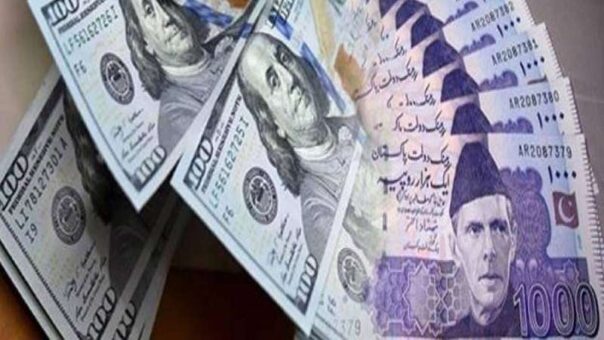Karachi, February 11, 2024 – Analysts foresee potential challenges to exchange rate stability in the coming week, starting February 12, 2024, as a result of post-election political uncertainty in Pakistan.
While some analysts express concerns about the impact of political instability on the exchange rate, others are optimistic, citing the steady supply of dollars from exporters as a stabilizing factor for the Pakistani Rupee (PKR) against the US Dollar.
Throughout the week, the rupee exhibited slight gains against the greenback in the interbank market, closing at 279.28 on Friday, a marginal improvement from 279.42 recorded on Tuesday. Market closure on Monday for Kashmir Day and Thursday for the general elections contributed to the shortened trading week.
The recently held general elections, marked by allegations of rigging and violence, resulted in a hung parliament, with no single party securing a clear majority. Imran Khan’s party, despite his incarceration, emerged as the largest single bloc, followed by the Pakistan Muslim League-Nawaz (PML-N) led by Nawaz Sharif, and the Pakistan People’s Party (PPP) led by Bilawal Bhutto Zardari.
The competing claims of victory by Khan and Sharif have raised concerns regarding potential political deadlock, which could impede crucial reforms and foreign financing, exacerbating Pakistan’s existing economic challenges.
Analysts caution that the fluid and uncertain political situation may lead to protests and further violence if election results are not universally accepted. Such unrest could dent investor and creditor confidence, placing additional pressure on the rupee and Pakistan’s external account.
Pakistan confronts a mounting current account deficit, declining foreign exchange reserves, and an imminent debt crisis, making an IMF bailout increasingly probable once the new government assumes office.
While the IMF has conducted two reviews of Pakistan’s $3 billion loan program, the third review scheduled for March faces potential obstacles due to political stalemate and potential shifts in economic policies.
Despite the political turbulence, analysts anticipate relative stability for the rupee in the short term, buoyed by ample dollar liquidity in the market, particularly from exporters engaging in forward contracts. The attractiveness of forward premiums, particularly in the 15 to 60-day tenors, further contributes to this stability.
Moreover, market optimism prevails regarding anticipated inflows from bilateral and multilateral sources once political uncertainties subside.
According to the latest data, Pakistan’s foreign exchange reserves, held by the central bank, experienced a minor decline of $173 million, reaching $8.044 billion as of February 2, underscoring the ongoing economic challenges facing the nation.
